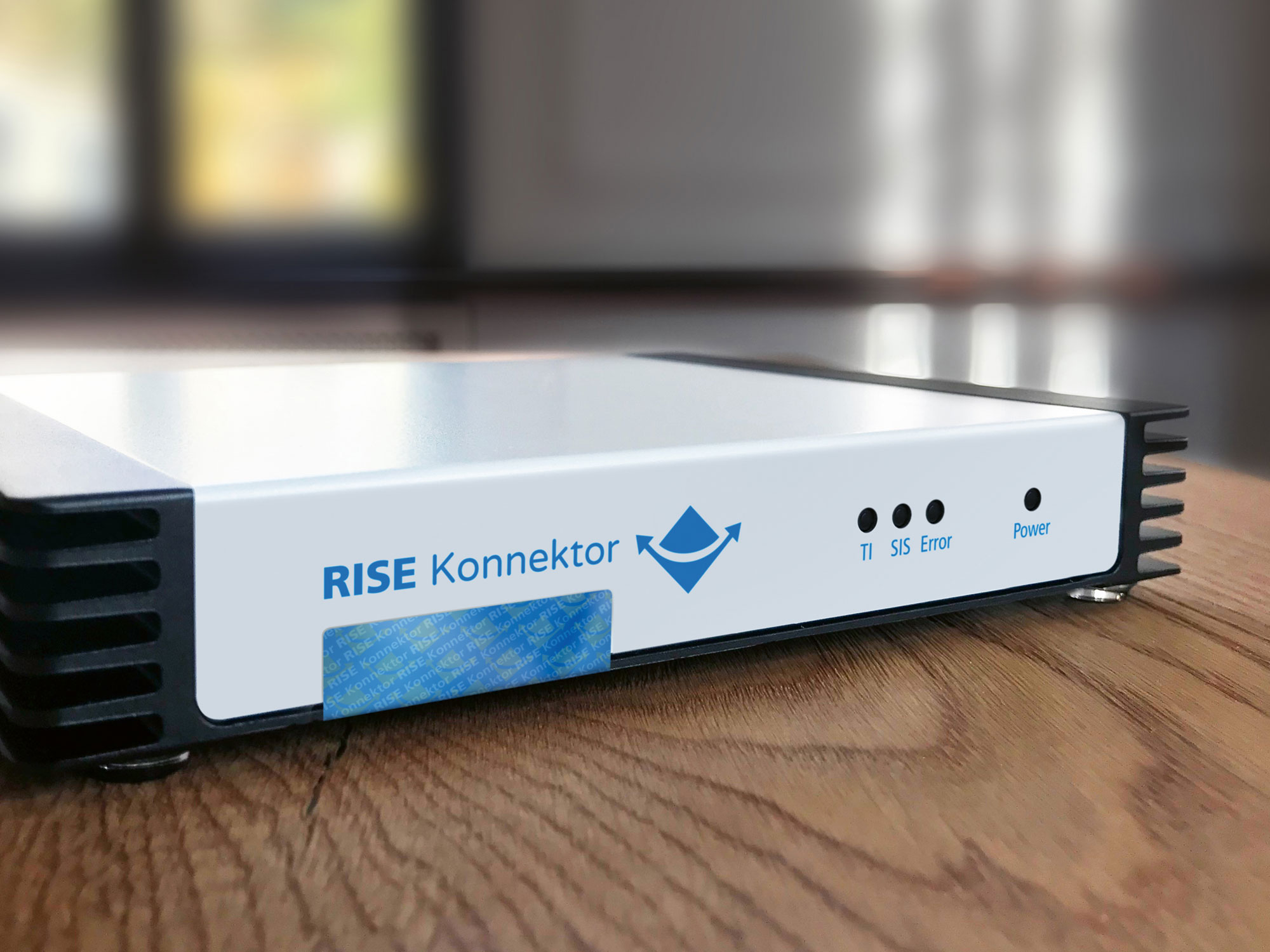IT Service Management
The operation of applications is often a very long-term project. Maintaining the required quality of service over the lifetime of the operation requires the leadership discipline of reliable service management. In IT Service Management (ITSM), RISE combines all the tasks required to set up, maintain and develop all activities for our service customers. Among the many benefits of ITSM, we particularly value the predictable IT service quality, the associated predictable costs and the continuous improvement of our IT effectiveness.

With our well-established IT processes, complex infrastructures can be managed properly, and we spend less time on the proverbial fire-fighting and have more resources available for your and our strategic initiatives.
The most widely used framework for IT process management since the late 1980s is the Information Technology Infrastructure Library (ITIL), which consists of five parts: Strategy, Design, Transition, Operation and Continuous Service Improvement. As an architect and operator of solutions with high to very high security, quality and availability requirements, it is essential for us to meet the requirements for certified ITSM in accordance with ISO/IEC 20000.
Good IT service management
What do we mean by good IT Service Management? As a service provider, we can only offer and develop an attractive and, above all, useful service portfolio if we really understand our customers' concerns.
**We follow the simple rule of good IT Service Management: poorly defined and maintained services cannot be managed very well.
That is why maintaining a service lifecycle and continuously improving our services and ITSM processes is out of the question for us.
Central Service Control Centre
Modern availability management
Precise Service Level Management
Proactive incident and problem management
Change management in practice
Assure IT Service Continuity Management

Central Service Control Centre
Our Service Control Centre actually works like an airport control tower. It is not directly involved. But it has an overview of the situation.
The Service Control Centre delivers faster problem resolution. It is the central hub for all matters relating to responsible IT services Our multi-disciplinary teams of designers, architects and engineers work with our customers through the Service Control Centre. We create comprehensive concepts for the transition to a 360 degree view of operation and are happy to answer any questions you may have. In the event of a malfunction, our Service Control Centre provides a single point of contact for troubleshooting - 24/7 if required.

Modern availability management
DevOps vs. ITIL vs. SRE? It's not an either/or. Since the beginning of IT, it has been the job of Operations to find ways to make technology more and more reliable.
Even the best technology developed and deployed on a faulty, disruptive, rigid or fragile infrastructure will ultimately frustrate users. The initial development of an effective technology solution is only part of the picture, as it must also function reliably in the long term. Site Reliability Engineering (SRE) is one of the most successful methods of tackling this complex operational problem. It is a back-to-basics approach that ensures the reliable management of IT services from a software developer's perspective, but it does not mean that we throw DevOps or even ITIL overboard. We have been living DevOps, ITIL and Site Reliability Engineering together for a very long time. We just had different words for it. Ultimately, there is great value for us in taking the best of each discipline and integrating it to ensure the best possible service availability.

Precise Service Level Management
Service Level Management (SLM) is our IT service management process for ensuring that the service standards agreed with our customers are delivered.
Our aim is to design and monitor a service to meet the needs of our customers. Whether you purchase services from our RISE Cloud Services Catalogue, have your project hosted on our infrastructure, or have one of our products hosted on your infrastructure, we will create meaningful Service Level Agreements, provide traceable quality of service , monitoring and reporting .

Proactive incident and problem management
In line with ITIL, we make a strict distinction between incidents and problems. We use our certified service organisation to resolve sudden or imminent service interruptions as quickly as possible - and we use problem management to get to the root of recurring interruptions to prevent future incidents.
To continually improve our problem management, we follow best practice and maintain a Known Error Database (KEDB). This central knowledge base of all known errors and their solutions enables our teams to access existing knowledge for faster resolution.
Responding efficiently and effectively to incidents is a must for us - but proactive problem management to prevent future incidents is just as important. RISE uses its own monitoring products in its projects to analyse thousands of events and metrics every day to identify trends and unexpected deviations from normal behaviour so that we can react before we have to.

Change management in practice
A quote often used in IT is also our guiding principle: "Nothing is as constant as change". (Heraclitus of Ephesus, 535-475 B.C.) This immutable fact of constant change is at odds with a quote often used in IT: "Never change a running system".
Whether due to high security requirements and the need to install security updates, the need to install bug fixes, or the replacement of system parts due to the end of their support cycle, there is no option of not changing existing systems. We make the best of this situation by applying ITIL best practice and are used to making necessary changes in an organised way and only after assessing the risks and impact.
As a manufacturer of large software systems, we know that change is inevitable in the lifecycle of these systems, and that these changes can be made both harder and easier through software engineering and architectural decisions. For us, DevOps is not just a buzzword for modernising operations - for us, it is a lived practice for producing operable systems, which allow sufficient maintainability and operability despite constant change throughout the system lifecycle by taking into account operationally relevant aspects at an early stage.

Assure IT Service Continuity Management
The IT environment is becoming increasingly complex and demanding. Organisations today face a multitude of IT challenges that threaten their operations or even their very existence.
With successful IT Service Continuity Management (ITSCM), we ensure that our customers' IT can continue to function properly and recover quickly from disruptions. We integrate our ITSCM into our customers' IT Business Continuity Management. As an operator of large national solutions in critical infrastructures such as healthcare, we are used to dealing with high continuity requirements and living the necessary processes.
There are many factors that can slow or stop recovery from an incident if you are not well prepared. With carefully documented and clear plans for IT Service Continuity Management, we minimise delays in appropriate responses caused by learning curves and panic in disaster situations.

ITSM: a strategic partner for your business
With ITSM, we turn operational challenges into strategic opportunities by seamlessly aligning your IT services with your business objectives. Our expert advice can help you manage this transition effectively and ensure long-term success.
